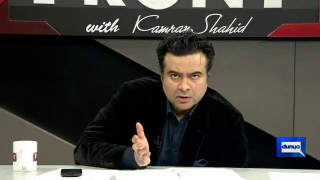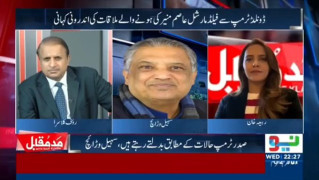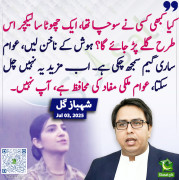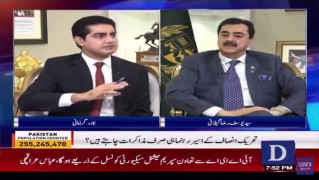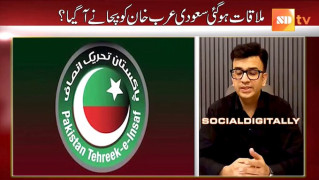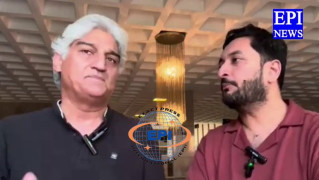DashingPun
MPA (400+ posts)
Inter-Services Intelligence
Founded in 1948 by British army officer
Estimated to have at least 10,000 officers and staff
Officers seconded to it from armed forces
Said to be organised in six to eight divisions
Musharraf reported to have closed or restructured division responsible for Kashmir
Said to be deeply involved in domestic politics
Delhi accuses it of sponsoring rebels in Kashmir and other parts of India.
ISI 'dictates policy'
"It is a state within a state," says Wajid Shamsul Hasan, a former Pakistani High Commissioner in Britain who is close to former prime minister Benazir Bhutto.
"Pakistan's foreign policy has been run by the ISI rather than the foreign office," he said. But former ISI chiefs say corrupt politicians have created "misperceptions" about the agency because they were trying to blame the ISI for their own failures.
"Politicians have always viewed the ISI in a doubtful light... especially when the ISI was reporting that they were plundering the country," said former ISI director-general Hamid Gul.
"Our foreign office created the impression that the ISI was a rogue agency out of control," General Gul said.
Shortly before the US air strikes in Afghanistan began, General Musharraf appointed a new ISI director-general - Lieutenant-General Ehsanul Haq.
He is seen as more liberal and moderate than his predecessor General Mahmood Ahmed, said to have been close to the Taleban - although he also enjoyed good connections in Washington and was in the United States on 11 September.

The Americans have always felt more comfortable talking to the ISI than to the government of the day

Wajid Shamsul Hasan
But there are questions about how far central control extends in the ISI, although General Musharraf - as a military leader - is probably better able to rein in the agency, which is part of the military structure.
"Under civilian rule the ISI had a fair amount of independence," says Gary Samore of the International Institute for Strategic Studies in London. "Under Musharraf, they're answerable."
Mr Hasan, however, said: "Musharraf has made a few changes but the fact of the matter is that the organisation is too big and self-interested."
ISI officers are more likely to wear sunglasses and sharp haircuts than turbans and beards.
But because of ISI support for the Taleban, the agency is reported to have developed links with Osama Bin Laden's al-Qaeda network.This still taken from an Indian army video allegedly shows a militant training in Pakistan."You can't develop ties over 10 or 15 years and then cut them off instantly," says Steven Cohen of the Brookings Institution - a Washington think-tank.
"It's a big bureacracy and changing its direction will take a while, Mr Cohen said, but added that "Musharraf has done a pretty good job on switching policy on Afghanistan."
Afghan Interior Minister Younis Qanooni has accused the ISI of helping Bin Laden to flee from Afghanistan. That accusation is dismissed by the Pakistani Government, which views the new Afghan authorities as being pro-Indian, whereas the Taleban were seen as pro-Pakistani.
General Gul claimed that the ISI - said to have supported and funded the Taleban with help from the CIA - was only heavily involved in Afghanistan during the Soviet occupation.
"It is wrong that the ISI created the Taleban," he said. "They were a spontaneous response and the ISI and the US started supporting them because everyone wanted an end to the in-fighting between the Afghan factions."
General Gul rejected accusations that the ISI or rogue elements within the ISI were to blame for the 13 December suicide attack on India's parliament.
"Somebody would be mad to prepare an attack like that," he said. "The ISI has not had full control over all the factions operating in Kashmir."
"No one can make a career out of the ISI," General Qazi said. "ISI people are serving armed forces officers and after three years they go back. The director-general is appointed by the prime minister."
Source
http://news.bbc.co.uk/2/hi/south_asia/1750265.stm
Founded in 1948 by British army officer
Estimated to have at least 10,000 officers and staff
Officers seconded to it from armed forces
Said to be organised in six to eight divisions
Musharraf reported to have closed or restructured division responsible for Kashmir
Said to be deeply involved in domestic politics
Delhi accuses it of sponsoring rebels in Kashmir and other parts of India.
ISI 'dictates policy'
"It is a state within a state," says Wajid Shamsul Hasan, a former Pakistani High Commissioner in Britain who is close to former prime minister Benazir Bhutto.
"Pakistan's foreign policy has been run by the ISI rather than the foreign office," he said. But former ISI chiefs say corrupt politicians have created "misperceptions" about the agency because they were trying to blame the ISI for their own failures.
"Politicians have always viewed the ISI in a doubtful light... especially when the ISI was reporting that they were plundering the country," said former ISI director-general Hamid Gul.
"Our foreign office created the impression that the ISI was a rogue agency out of control," General Gul said.
Shortly before the US air strikes in Afghanistan began, General Musharraf appointed a new ISI director-general - Lieutenant-General Ehsanul Haq.
He is seen as more liberal and moderate than his predecessor General Mahmood Ahmed, said to have been close to the Taleban - although he also enjoyed good connections in Washington and was in the United States on 11 September.

The Americans have always felt more comfortable talking to the ISI than to the government of the day

Wajid Shamsul Hasan
But there are questions about how far central control extends in the ISI, although General Musharraf - as a military leader - is probably better able to rein in the agency, which is part of the military structure.
"Under civilian rule the ISI had a fair amount of independence," says Gary Samore of the International Institute for Strategic Studies in London. "Under Musharraf, they're answerable."
Mr Hasan, however, said: "Musharraf has made a few changes but the fact of the matter is that the organisation is too big and self-interested."
ISI officers are more likely to wear sunglasses and sharp haircuts than turbans and beards.
But because of ISI support for the Taleban, the agency is reported to have developed links with Osama Bin Laden's al-Qaeda network.This still taken from an Indian army video allegedly shows a militant training in Pakistan."You can't develop ties over 10 or 15 years and then cut them off instantly," says Steven Cohen of the Brookings Institution - a Washington think-tank.
"It's a big bureacracy and changing its direction will take a while, Mr Cohen said, but added that "Musharraf has done a pretty good job on switching policy on Afghanistan."
Afghan Interior Minister Younis Qanooni has accused the ISI of helping Bin Laden to flee from Afghanistan. That accusation is dismissed by the Pakistani Government, which views the new Afghan authorities as being pro-Indian, whereas the Taleban were seen as pro-Pakistani.
General Gul claimed that the ISI - said to have supported and funded the Taleban with help from the CIA - was only heavily involved in Afghanistan during the Soviet occupation.
"It is wrong that the ISI created the Taleban," he said. "They were a spontaneous response and the ISI and the US started supporting them because everyone wanted an end to the in-fighting between the Afghan factions."
General Gul rejected accusations that the ISI or rogue elements within the ISI were to blame for the 13 December suicide attack on India's parliament.
"Somebody would be mad to prepare an attack like that," he said. "The ISI has not had full control over all the factions operating in Kashmir."
"No one can make a career out of the ISI," General Qazi said. "ISI people are serving armed forces officers and after three years they go back. The director-general is appointed by the prime minister."
Source
http://news.bbc.co.uk/2/hi/south_asia/1750265.stm
Last edited:





